THE BEST PROTEIN SOURCES FOR BUILDING MUSCLE AND LOSING FAT
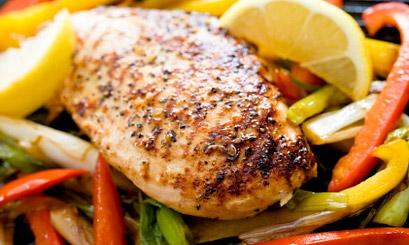
Protein is without a doubt the most vital nutrient for those trying to build lean muscle and melt off body fat.
Protein is a macronutrient that is made up of a chain of smaller building blocks called amino acids. After you consume and digest protein it will eventually be broken down into individual amino acids to be used for literally thousands of functions throughout your body.
Almost every single process within your body that is geared towards building muscle and burning fat relies heavily on this all-too important nutrient.
Next to water it is the most abundant bodily substance and can be found in every single one of the trillions of cells you are made up of.
It is also important in the production of enzymes, blood health maintenance and proper immune system function.
Above all, it is responsible for the growth and repair of damaged muscle tissue. If you do not provide your body with a sufficient amount of high quality protein each day, building muscle will be next to impossible.
If your body were a house, consider protein to be the bricks. Your body already needs protein for natural everyday processes, so your consumption of protein must increase as you train intensely with weights.
There are 2 main factors to take into account when selecting protein sources for your diet…
The first is the amino acid profile. Certain protein sources are superior to others in that they contain an amino acid breakdown that is more conducive to supporting lean muscle growth. Of particular importance are the branched-chain amino acids, l-leucine, l-valine and l-isoleucine, with l-leucine being the most critical of all.
The second is the bio-availability. This refers to the percentage of the total protein content that will actually be absorbed and utilized by the body. For example, only about 76% of the protein in rice is utilized by the body compared to the 97% absorption rate of egg protein.
Below is a list of the best sources of protein for building muscle and losing fat due to their strong amino acid profiles and bio-availability. These sources should ideally make up the bulk of your total protein intake…
Eggs
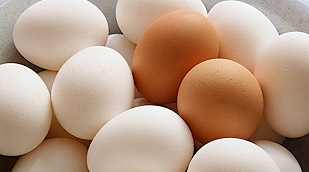
Eggs are a very versatile protein source and can be scrambled, hardboiled or fried making for a great breakfast food. They are ranked second on the biological value scale next to whey protein, with nearly 100% of the total protein content being utilized by the body.
Not only does one whole egg contains about 6 grams of high quality protein, but the yolk is extremely nutrient dense and provides a variety of valuable vitamins and minerals.
Keep in mind that one whole egg does contain 5 grams of fat, and although there’s nothing inherently wrong with fat itself, consuming too many whole eggs may shoot your overall calorie intake too high. The egg white itself contains virtually zero fat, so a mix of whole eggs and egg whites is usually best.
A lot of people shy away from eggs because of their “high cholesterol” content. It’s important to keep in mind that the body naturally adjusts its own production of cholesterol in response to external consumption, and eating eggs on a regular basis has not been shown to raise the body’s overall levels.
Lean Red Meat
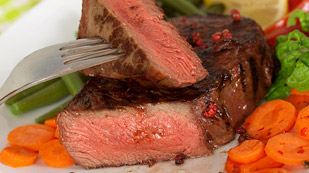
Red meat contains the highest concentration of muscle-supporting micronutrients of any protein source out there. It’s loaded with high amounts of natural creatine, b-vitamins, iron and zinc.
Stick to leaner sources to keep your total fat and calorie intake under control. These are considered to be the leanest cuts you can find:
- Eye of round roast or steak
- Sirloin tip side steak
- Top round roast and steak
- Bottom round roast and steak
- Top sirloin steak
Extra lean ground beef is also a great choice.
Lean Poultry
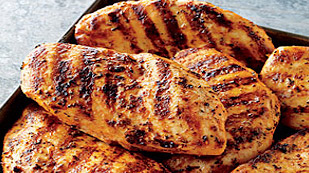
Chicken and turkey are another muscle building and fat burning staple. The white portion of the meat is very low in fat and extremely high in protein.
Poultry is an excellent protein source and can be used to make an endless number of different meals.
Lean Pork
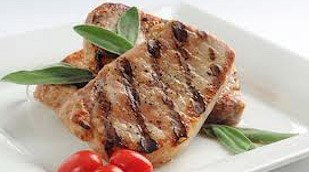
Although not typically mentioned in bodybuilding and fitness discussions, lean pork is actually a very high quality protein source with an extremely high bio-availability. Pork tenderloin contains just 1 gram of fat per ounce, which is about the same amount as a skinless chicken breast.
Skim Milk
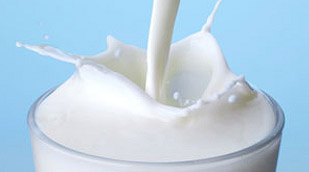
This is another great protein source and offers a variety of muscle building benefits. It contains about 8 grams of protein for one cup and can be easily added to meals to ensure that your total daily protein requirements are met. It’s also a great choice for mixing up protein shakes and smoothies.
Milk also provides a great spectrum of amino acids and contains short-chain fatty acids which help to support muscle growth.
In addition to all of this, milk is a great source of calcium as well as other valuable vitamins and minerals.
Fish/Seafood
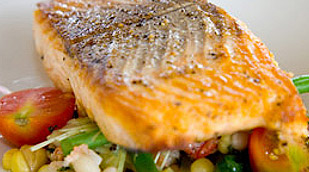
There’s almost no end to the possible choices here.
Salmon, cod, tuna, halibut and talapia are just a few of the possible options. Not only is fish high in protein, but it also provides the body with a high amount of the omega 3 fatty acids EPA and DHA, which are critical to your overall health as well as improving muscle growth, fat loss and joint strength.
Don’t overlook other sources of seafood that you could include in your diet as well, such as shrimp, lobster, crab and scallops.
Cottage Cheese
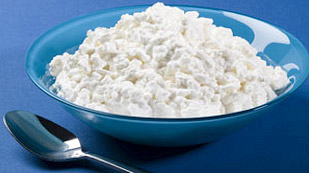
Cottage cheese contains mostly casein protein and is also rich in l-glutamine. It makes for a great snack and tastes great when mixed with fresh fruit, peanut butter, canned salmon or even on its own with a bit of salt and pepper.
Whey Protein
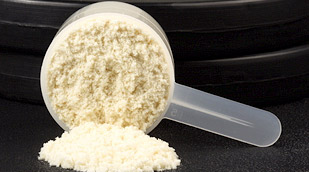
Whey is a natural component of dairy that is extracted during the process of turning milk into cheese. Though often referred to as a “supplement”, whey is actually a completely natural food product and can be incorporated into your diet in the same way as any other food.
It is ranked #1 on the biological value scale (meaning your body will absorb the highest percentage of the overall protein content) and provides the most effective amino acid profile for supporting muscle growth and fat loss.
Whey also delivers a wide array of health benefits, such as strengthening the immune system and regulating mood.
Whey can be used to make a wide variety of delicious shakes, snacks and other recipes and is an incredibly convenient way to meet your daily protein needs.
How much protein should you be consuming daily?
A simple, straightforward and highly effective guideline for supporting muscle growth, fat loss and recovery is to consume 1 gram of protein per pound of body weight daily.
So, if you weighed 175 pounds, you’d shoot for 175 grams of protein daily. (If you measure in kilos, keep in mind that 1 kilogram is equal to 2.2 pounds)
If you found this article helpful, make sure to sign up for your FREE custom fitness plan below...




